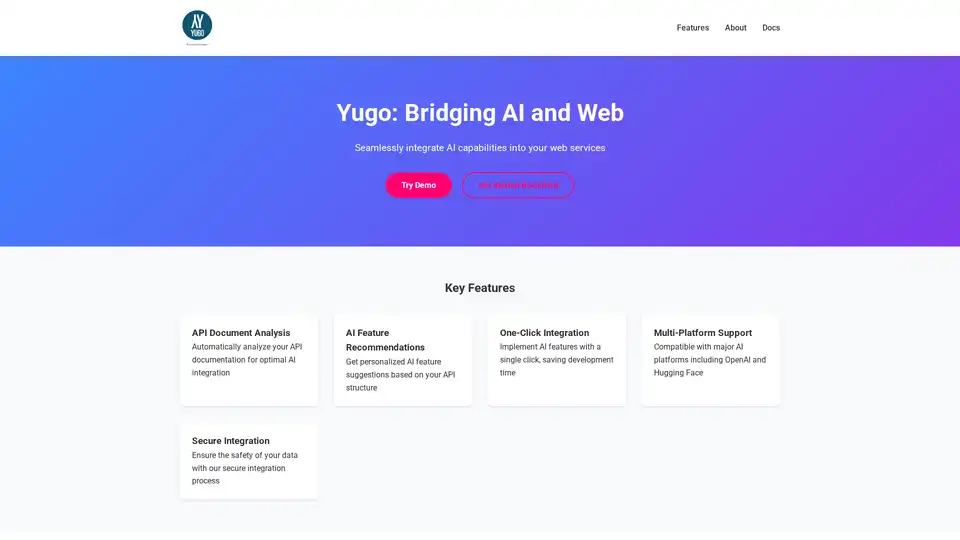
Yugo
Overview of Yugo
What is Yugo?
Yugo is an innovative AI and web integration platform that bridges the gap between artificial intelligence capabilities and web services. Designed for developers and businesses, it streamlines the process of incorporating AI functionalities into applications, making advanced tech accessible without extensive coding expertise. By focusing on automation and ease-of-use, Yugo helps transform ordinary web services into intelligent, AI-enhanced solutions that deliver superior user experiences.
Whether you're building e-commerce platforms, content management systems, or custom web apps, Yugo's tools ensure seamless AI adoption. Its core mission is to reduce development time and complexity, allowing teams to prioritize innovation over integration hurdles. As AI continues to shape digital landscapes, platforms like Yugo stand out by offering practical, developer-friendly solutions that align with modern web development needs.
How Does Yugo Work?
At its heart, Yugo operates through an intelligent, step-by-step integration workflow. The process begins with API Document Analysis, where the platform automatically scans and interprets your existing API documentation. This analysis identifies opportunities for AI enhancement, such as natural language processing for user queries or predictive analytics for data handling. No manual parsing required—Yugo's algorithms handle the heavy lifting, ensuring compatibility and suggesting optimal entry points for AI features.
Next comes AI Feature Recommendations, a personalized service that reviews your API structure to propose tailored AI enhancements. For instance, if your web service involves user interactions, Yugo might recommend integrating sentiment analysis from models like those on OpenAI or Hugging Face. These suggestions are data-driven, based on best practices in AI-web synergy, and include implementation previews to guide your decisions.
The standout element is One-Click Integration, which allows you to deploy these AI features with minimal effort. Simply select a recommendation, and Yugo generates the necessary code snippets, API calls, and configurations. This low-code approach supports major AI ecosystems, including OpenAI's GPT models for text generation or Hugging Face's transformers for custom machine learning tasks. Throughout, Secure Integration protocols protect your data, employing encryption and compliance standards to safeguard sensitive information during the merge.
Multi-platform support extends Yugo's versatility, making it compatible with diverse environments. Developers can integrate it into RESTful APIs, GraphQL endpoints, or even serverless architectures, all while maintaining performance. The platform's backend leverages robust AI processing to ensure low latency, so your web services remain responsive even with added intelligence.
Key Features of Yugo
Yugo packs a suite of powerful features that cater to various integration needs:
- Automated API Analysis: Scans docs in seconds, highlighting AI-compatible sections and potential bottlenecks.
- Personalized Recommendations: Uses your API's specifics to suggest features like chatbots, image recognition, or recommendation engines.
- One-Click Deployment: Reduces setup from hours to minutes, with auto-generated code for popular frameworks like React or Node.js.
- Broad AI Platform Compatibility: Works seamlessly with OpenAI, Hugging Face, Google Cloud AI, and more, allowing hybrid model usage.
- Security-First Design: Includes OAuth, API key management, and audit logs to ensure secure data flows.
These features not only accelerate development but also future-proof your applications by keeping them adaptable to evolving AI technologies.
How to Use Yugo?
Getting started with Yugo is straightforward and user-friendly. Begin by signing up on the Yugo website and creating a new project. Upload or link your API documentation—support for formats like OpenAPI, Swagger, or plain text ensures broad accessibility. The platform then runs its analysis, presenting a dashboard with insights and recommendations.
To implement, select a suggested feature and click 'Integrate.' Yugo provides step-by-step code examples, which you can copy-paste into your codebase. For testing, use the built-in demo environment to simulate integrations without affecting production. Documentation is comprehensive, with guides covering everything from basic setups to advanced customizations. If you're a pre-access user, you'll unlock beta features like experimental AI models for even deeper integrations.
For teams, Yugo offers collaborative tools, such as shared projects and version control for integrations. Monitor performance via analytics dashboards that track AI usage metrics, error rates, and ROI from enhanced features.
Why Choose Yugo for AI-Web Integration?
In a crowded market of AI tools, Yugo differentiates itself through its focus on web-specific integrations. Traditional methods often involve manual API mapping and trial-and-error debugging, which can delay launches and increase costs. Yugo eliminates these pain points, potentially cutting development time by up to 70%, based on user feedback from early adopters.
Its emphasis on security addresses common concerns in AI adoption, where data breaches can undermine trust. By supporting open standards and popular platforms, Yugo avoids vendor lock-in, giving you flexibility to scale or switch providers. Moreover, the pre-access program provides tangible perks like priority support and higher API limits, making it ideal for growing businesses testing AI waters.
Real-world value shines in scenarios like enhancing e-commerce sites with AI-driven product recommendations or adding chat support to customer portals. Developers report faster iterations and happier end-users, as AI features feel native rather than bolted-on.
Who is Yugo For?
Yugo targets a range of users, from solo developers prototyping AI apps to enterprise teams scaling web services. It's perfect for:
- Web Developers: Seeking quick ways to add AI without deep ML knowledge.
- Product Managers: Looking to innovate user experiences with minimal engineering overhead.
- Startups and SMBs: Needing cost-effective AI integration to compete with larger players.
- AI Enthusiasts: Experimenting with hybrid models in web contexts.
Even non-technical users can benefit through its intuitive interface, though basic programming familiarity enhances customization. If you're dealing with legacy systems or migrating to AI-powered architectures, Yugo's analysis tools provide clear migration paths.
Best Ways to Maximize Yugo's Value
To get the most out of Yugo, start small: Integrate one feature, like a simple text classifier, to build confidence. Leverage community resources for tips on advanced setups, such as combining OpenAI for generation with Hugging Face for fine-tuning. Regularly update your API docs as your service evolves, ensuring Yugo's recommendations stay relevant.
For optimization, monitor integration health using built-in tools and iterate based on user data. Pair Yugo with CI/CD pipelines for automated deployments, turning AI enhancements into continuous improvements.
Pre-Access User Benefits and Community
Early adopters gain exclusive advantages, including beta testing of cutting-edge features like real-time AI adaptation. Priority access means you're ahead of the curve, with free trials of premium capabilities. Join the dedicated community channel for peer support, sharing case studies like how a fintech firm used Yugo to integrate fraud detection seamlessly.
In summary, Yugo isn't just a tool—it's a catalyst for AI-driven web innovation. By simplifying complex integrations, it empowers creators to build smarter, more engaging applications that meet today's demands. Ready to elevate your web services? Explore the demo and start integrating AI today.
Best Alternative Tools to "Yugo"
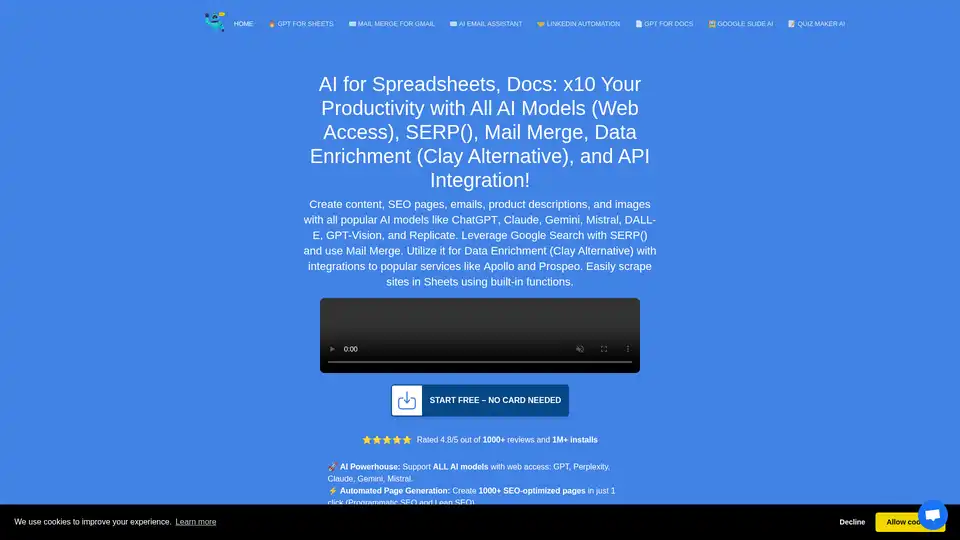
DocGPT.ai boosts productivity with AI for Spreadsheets, Docs, Slides, and Email. Access various AI models, automate SEO, and integrate with services like Apollo and Prospeo. Rated 4.8/5 with 1M+ installs.
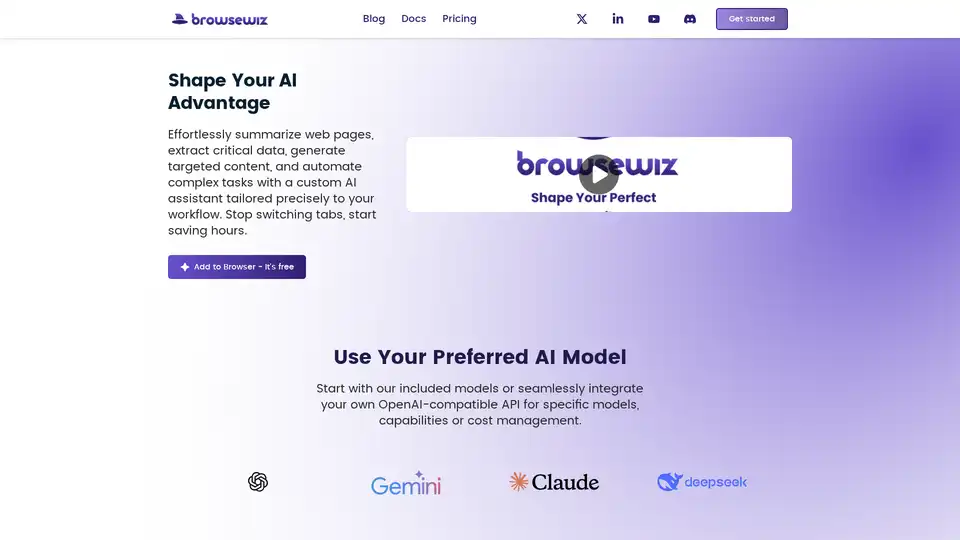
BrowseWiz is an AI-powered Chrome extension that enhances productivity by summarizing web pages, extracting data, generating content, and automating tasks. It integrates with OpenAI and allows custom prompt libraries.

Topicfinder is an AI-powered competitive research tool that finds thousands of high-value content topics in minutes with SEO metrics, filtering, and AI-generated optimized titles.
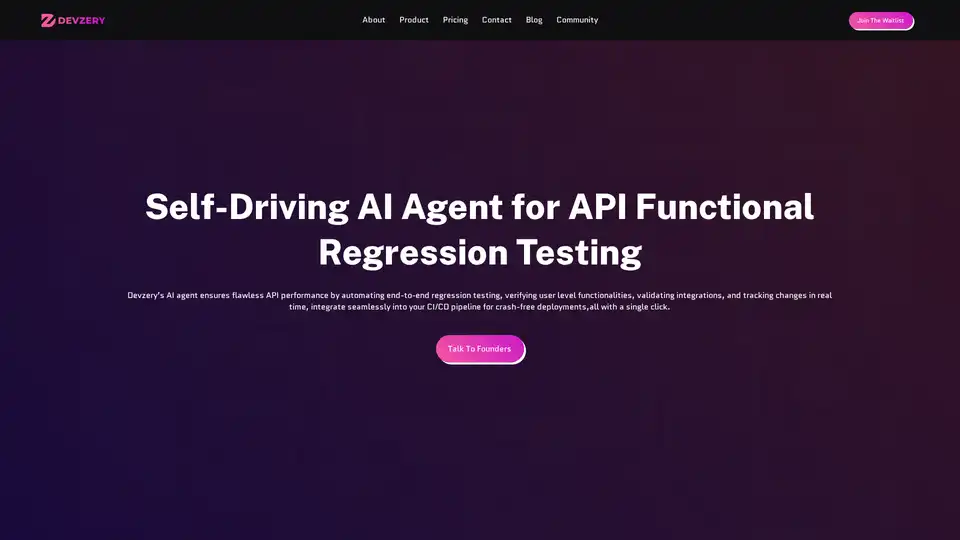
Devzery revolutionizes API testing with AI-driven automation for regression, integration, and load tests. Integrate into CI/CD pipelines for faster, bug-free releases and enhanced efficiency in software development.
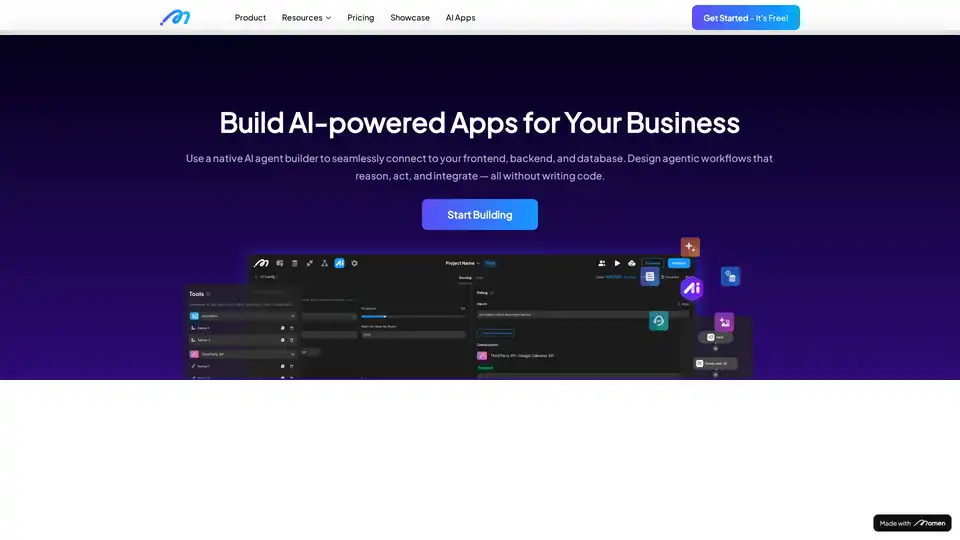
Create AI-powered apps and AI agents that automatically plan and execute your tasks. Build your full-stack AI apps and monetize it with Momen's flexible GenAI app dev framework. Get started today!
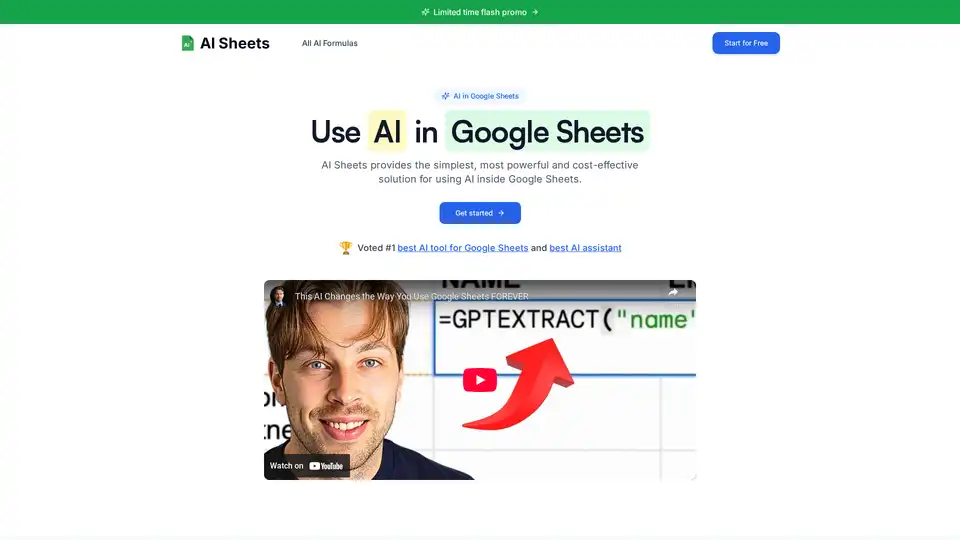
Discover AI Sheets, the top-rated AI tool for Google Sheets. Effortlessly generate content, analyze data, search the web, and automate tasks without API keys. Voted #1 with 4.9/5 stars—start your free trial today!
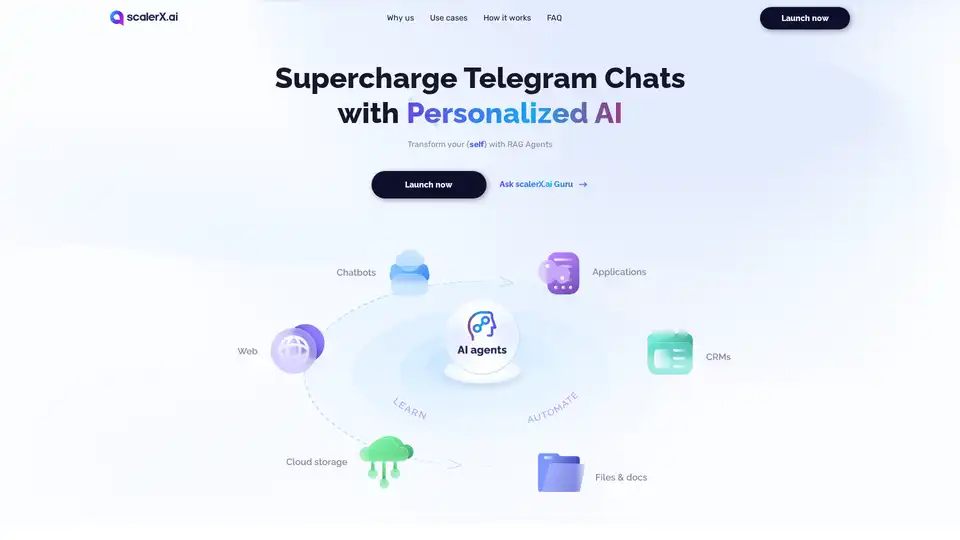
Personalized GenAI RAG agents trained with your data. Ideal for business owners, channel admins, customer service, sales, education and more.
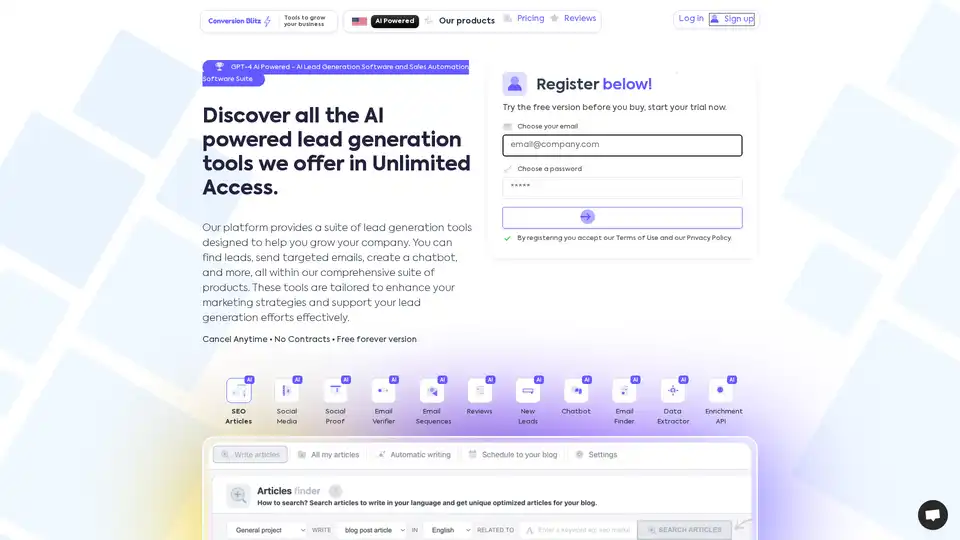
Boost your sales pipeline with AI lead generation software. Automate prospecting, enhance targeting, and increase conversion rates. Discover more now!
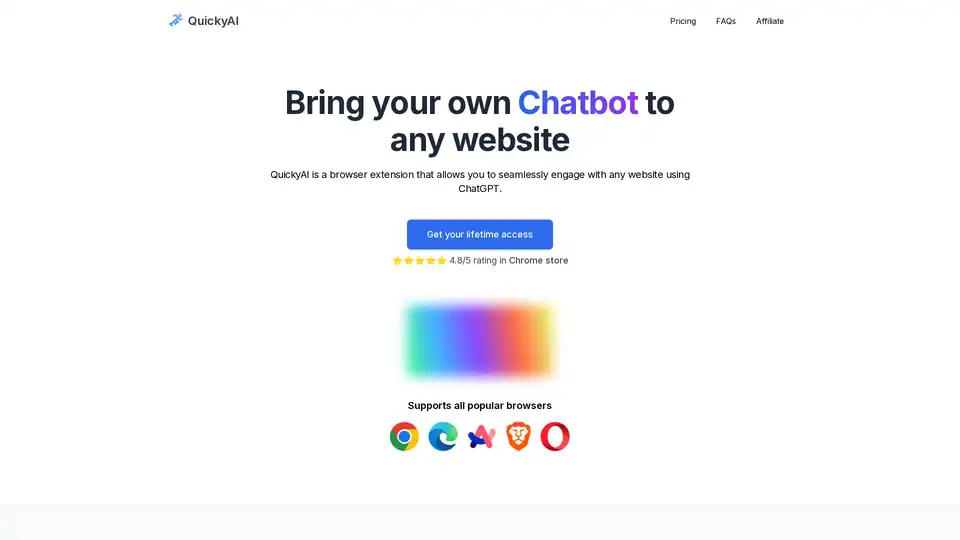
QuickyAI is a browser extension that integrates ChatGPT into any website, allowing instant chatting, one-click summarization, screenshot queries, and custom prompts to enhance productivity without leaving your page.
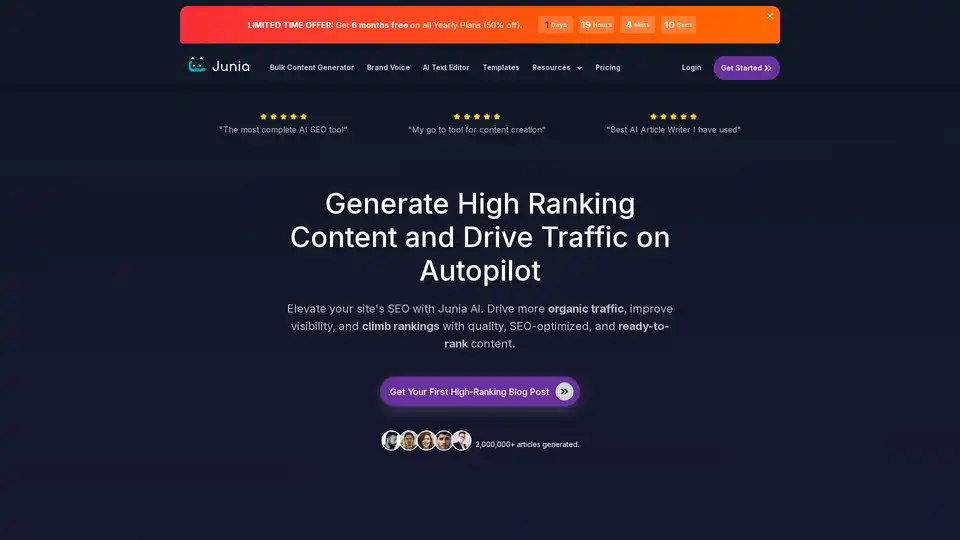
Junia AI is the best AI writer for SEO and on-brand long-form content! Generate in-depth, plagiarism-free content that ranks on Google. Ready to win the SEO game?
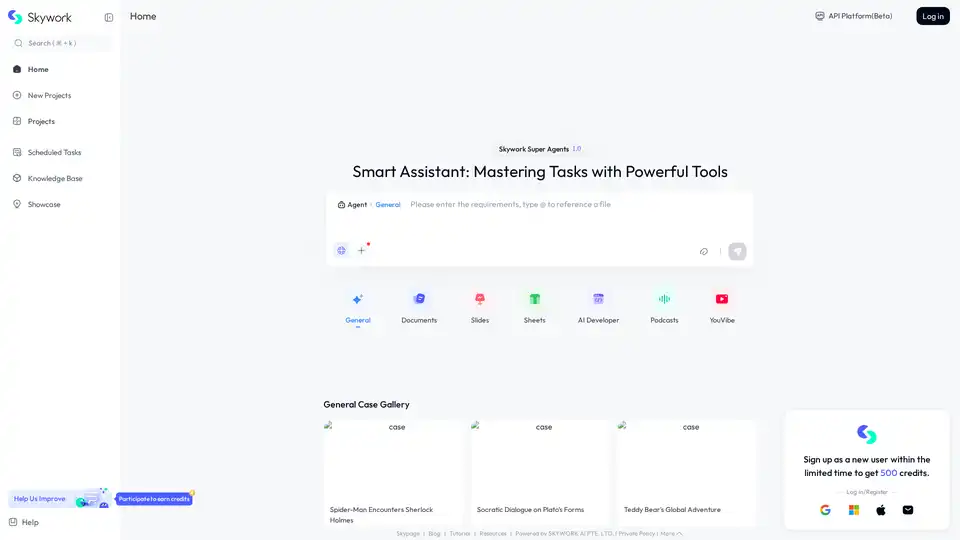
Skywork - Skywork turns simple input into multimodal content - docs, slides, sheets with deep research, podcasts & webpages. Perfect for analysts creating reports, educators designing slides, or parents making audiobooks. If you can imagine it, Skywork realizes it.
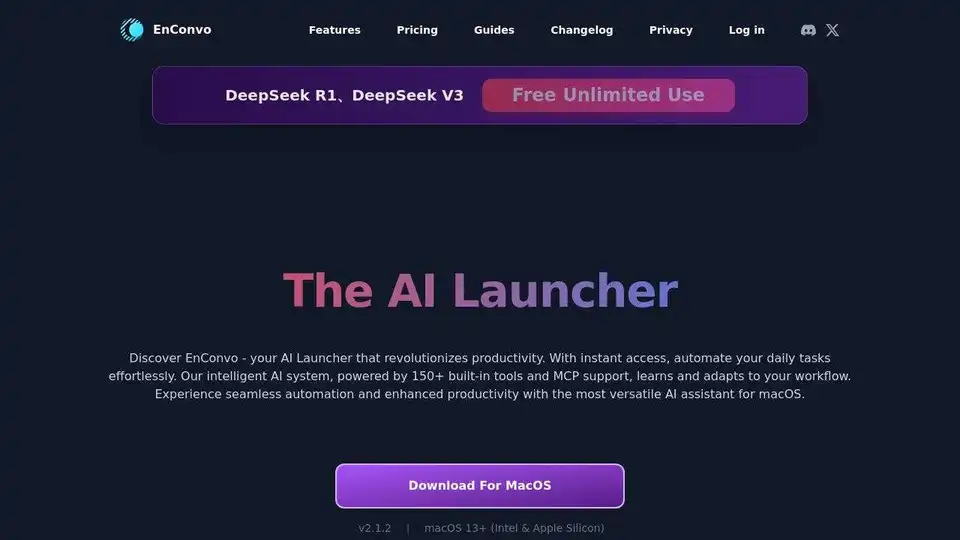
EnConvo is an AI Agent Launcher for macOS, revolutionizing productivity with instant access and workflow automation. Features 150+ built-in tools, MCP support, and AI Agent mode.

Upwex is an AI-powered Chrome extension that enhances Upwork with proposal generation, job analysis, CRM integration, and more, helping freelancers and companies succeed.
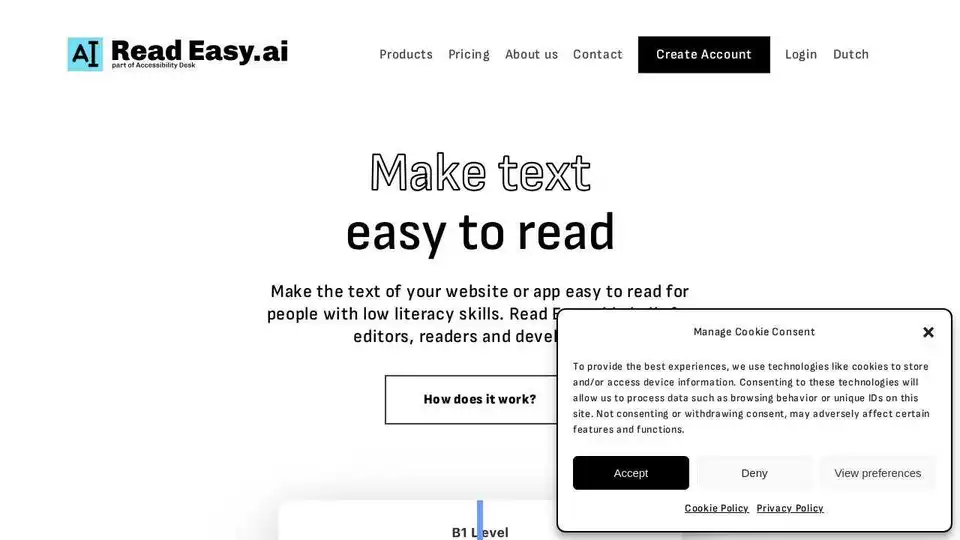
Read Easy.ai simplifies text for users with low literacy. Website, app, and API solutions for multiple languages.
